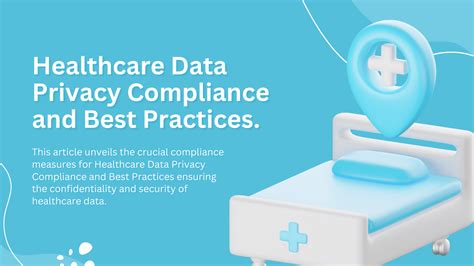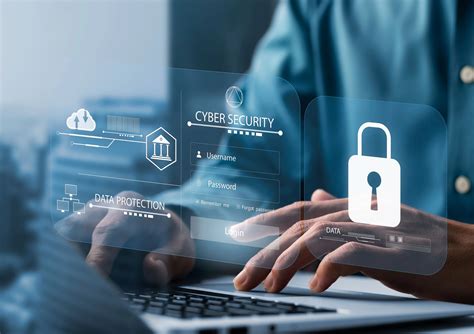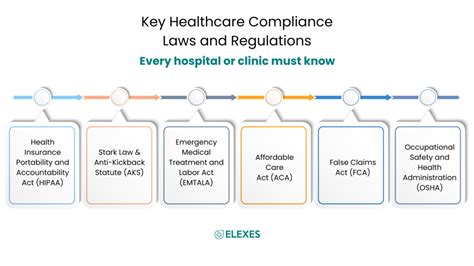Intro
Protecting health care privacy is crucial in todays digital age. Learn 3 effective ways to safeguard sensitive medical information, including data encryption, secure communication channels, and strict access controls. Discover how to prevent health data breaches, ensure HIPAA compliance, and maintain patient confidentiality in this informative article.
The importance of protecting health care privacy cannot be overstated. With the increasing use of electronic health records (EHRs) and the growing threat of cyber attacks, it's essential to take proactive steps to safeguard sensitive medical information. In this article, we'll explore three ways to protect health care privacy and ensure the confidentiality, integrity, and availability of patient data.

Implementing Robust Security Measures
One of the most effective ways to protect health care privacy is to implement robust security measures. This includes using encryption, firewalls, and intrusion detection systems to prevent unauthorized access to patient data. Health care organizations should also conduct regular security audits and risk assessments to identify vulnerabilities and address them promptly.
Encryption: The First Line of Defense
Encryption is a critical security measure that converts plaintext data into unreadable ciphertext. This ensures that even if unauthorized parties gain access to patient data, they won't be able to read or exploit it. Health care organizations should use end-to-end encryption for all data in transit and at rest, including EHRs, medical imaging, and other sensitive information.
Firewalls and Intrusion Detection Systems
Firewalls and intrusion detection systems (IDS) are essential security measures that monitor and control incoming and outgoing network traffic. Firewalls block unauthorized access to patient data, while IDS detect and alert administrators to potential security threats. Health care organizations should configure firewalls and IDS to block suspicious traffic and alert administrators to potential security incidents.

Training and Awareness
Another critical aspect of protecting health care privacy is training and awareness. Health care professionals, including doctors, nurses, and administrative staff, must understand the importance of maintaining patient confidentiality and the risks associated with data breaches. Regular training and awareness programs can help prevent data breaches and ensure that staff members are equipped to handle sensitive information.
Phishing and Social Engineering Attacks
Phishing and social engineering attacks are common tactics used by hackers to trick staff members into divulging sensitive information. Health care organizations should educate staff members on how to identify and respond to phishing and social engineering attacks, including reporting suspicious emails and phone calls.
Best Practices for Handling Sensitive Information
Health care professionals should follow best practices for handling sensitive information, including:
- Using secure communication channels, such as encrypted email and messaging apps
- Verifying patient identities before disclosing sensitive information
- Limiting access to patient data on a need-to-know basis
- Using secure storage devices, such as encrypted USB drives and external hard drives

Compliance with Regulations
Finally, health care organizations must comply with regulations and standards governing health care privacy. The Health Insurance Portability and Accountability Act (HIPAA) is a federal law that requires health care organizations to implement robust security measures to protect patient data.
HIPAA Compliance
HIPAA requires health care organizations to:
- Implement robust security measures, including encryption and firewalls
- Conduct regular security audits and risk assessments
- Train staff members on health care privacy and security
- Establish policies and procedures for handling sensitive information
State and International Regulations
In addition to HIPAA, health care organizations must comply with state and international regulations governing health care privacy. For example, the European Union's General Data Protection Regulation (GDPR) requires health care organizations to implement robust security measures and obtain explicit consent from patients before processing their data.

As we've seen, protecting health care privacy requires a multi-faceted approach that includes implementing robust security measures, training and awareness, and compliance with regulations. By taking these steps, health care organizations can ensure the confidentiality, integrity, and availability of patient data and maintain the trust of their patients.
Take Action
If you're concerned about health care privacy, take action today! Share this article with your friends and family, and encourage your health care provider to implement robust security measures to protect your sensitive information.
What is HIPAA?
+HIPAA is a federal law that requires health care organizations to implement robust security measures to protect patient data.
What is encryption?
+Encryption is a security measure that converts plaintext data into unreadable ciphertext.
Why is training and awareness important?
+Training and awareness are critical to preventing data breaches and ensuring that staff members are equipped to handle sensitive information.
